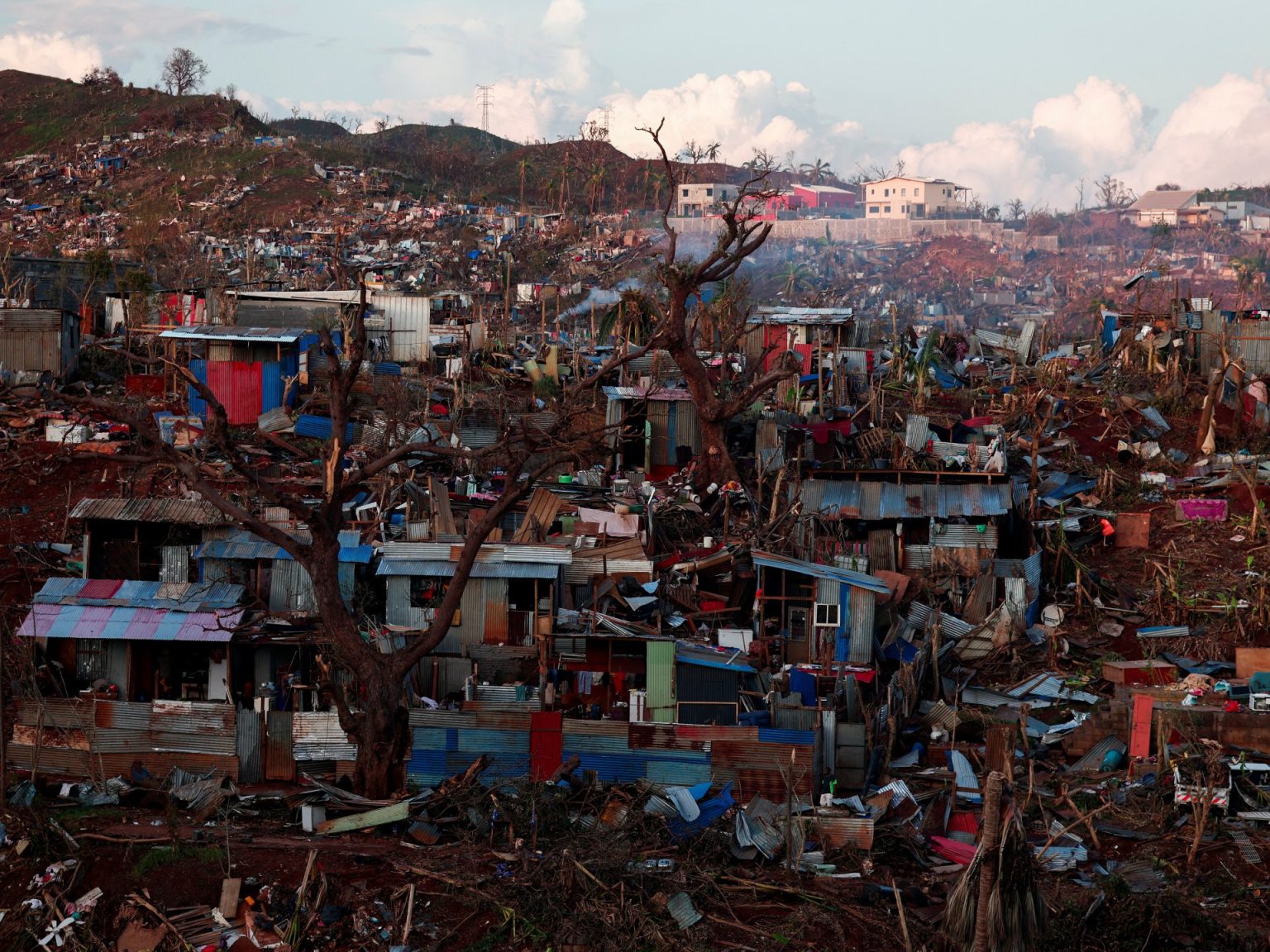The French Indian Ocean territory of Mayotte remains in a state of crisis days after Cyclone Chido, the most devastating storm in the region’s recorded history, ripped through the island, leaving a trail of destruction and claiming at least 31 lives. The true extent of the tragedy is still unfolding, with officials fearing the death toll could climb significantly higher as rescue efforts continue amidst the wreckage of flattened shantytowns and devastated neighborhoods. The cyclone, fueled by the increasingly volatile weather patterns attributed to climate change, has exposed the vulnerability of this impoverished French territory, where a significant portion of the population resides in precarious housing ill-equipped to withstand such a powerful storm. The immediate aftermath is marked by widespread shortages of essential resources, with residents struggling to access basic necessities like water and electricity, forcing them to queue for aid in the ravaged capital city of Mamoudzou.
The sheer force of Cyclone Chido has left an indelible mark on Mayotte’s landscape, transforming bustling neighborhoods into scenes of devastation. Homes have been reduced to rubble, infrastructure crippled, and the island’s already fragile economy further destabilized. The capital, Mamoudzou, bears the brunt of the damage, where even the central hospital, a critical lifeline in the emergency response, sustained significant structural damage. Despite the precarious conditions within the hospital itself, medical staff have remained committed to providing care, many even sleeping at their battered workplace after their own homes were swept away by the storm. The scene underscores the dedication of these frontline workers amidst the overwhelming challenges posed by the disaster, but it also highlights the severity of the situation, where even essential services are operating under extremely compromised conditions.
The international community has begun to respond to the crisis, with French President Emmanuel Macron visiting Mayotte to assess the damage firsthand and offer support. The French government has declared “exceptional natural disaster” measures, aiming to expedite aid and streamline the crisis response. This declaration signifies the gravity of the situation and underscores the need for a coordinated and comprehensive effort to address the immediate needs of the affected population and begin the long and arduous process of rebuilding. The scale of the devastation, however, is immense, and the challenges ahead are daunting. The limited resources and infrastructure of this already impoverished region will be severely tested in the coming weeks and months as the island grapples with the aftermath of this catastrophic event.
The vulnerability of Mayotte’s population has been tragically exposed by Cyclone Chido. A significant portion of the island’s residents live in shantytowns, characterized by flimsy, sheet metal-roofed homes offering little protection against the ferocity of the storm. This pre-existing housing crisis has exacerbated the impact of the cyclone, leaving many homeless and exposed to the elements. The widespread destruction of homes and infrastructure further compounds the challenges facing the island’s recovery, as shelter, sanitation, and access to essential services become critical priorities in the immediate aftermath. The long-term implications of this disaster are profound, highlighting the urgent need for sustainable housing solutions and improved infrastructure to enhance the resilience of vulnerable communities in the face of future extreme weather events.
Cyclone Chido is the latest in a series of increasingly powerful storms linked to the warming waters of the Indian Ocean, a direct consequence of climate change. Experts warn that these intensified weather patterns are becoming the new norm, posing a significant threat to island nations and coastal communities around the world. The rapid intensification and destructive power of Cyclone Chido serve as a stark reminder of the escalating risks associated with climate change and the urgent need for global action to mitigate its impact. The tragedy unfolding in Mayotte underscores the disproportionate burden borne by vulnerable communities, particularly in developing nations, who often lack the resources and infrastructure to cope with the devastating effects of these extreme weather events.
The road to recovery for Mayotte will be long and arduous. Beyond the immediate humanitarian needs of providing food, water, shelter, and medical care, the island faces the monumental task of rebuilding its devastated infrastructure, homes, and economy. The international community plays a crucial role in supporting these efforts, providing not only immediate aid but also long-term assistance to help Mayotte build back better, with greater resilience to future climate-related disasters. This includes investing in sustainable housing solutions, strengthening infrastructure, and implementing measures to mitigate the risks of future extreme weather events. The experience of Mayotte serves as a poignant reminder of the global interconnectedness of climate change and the urgent need for collective action to address this pressing challenge.

